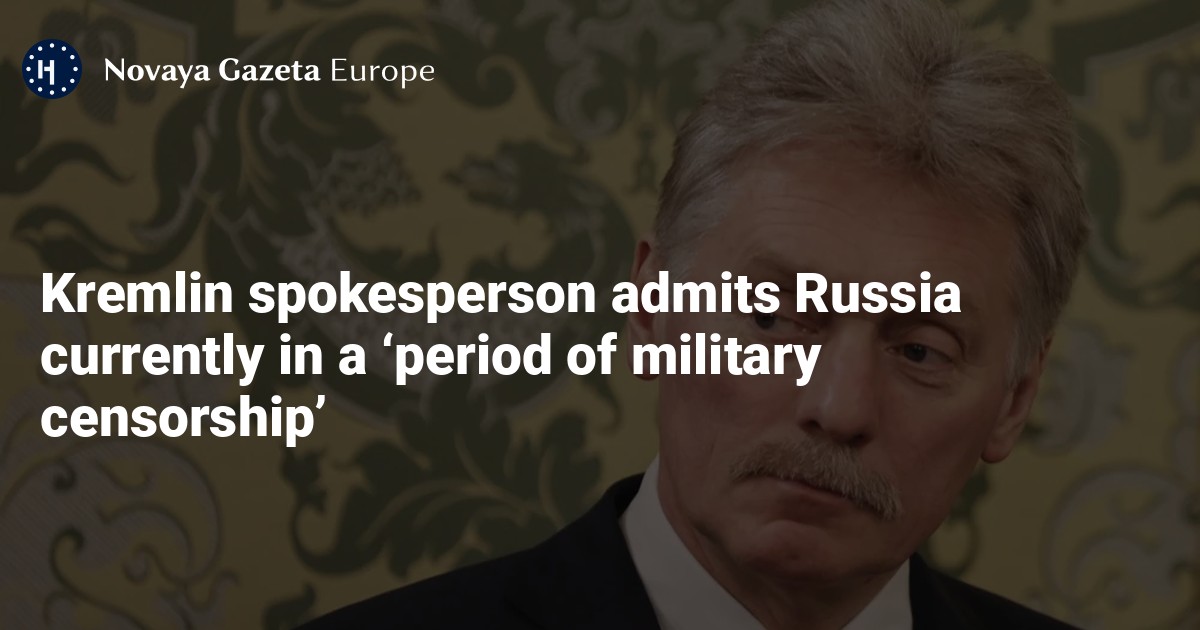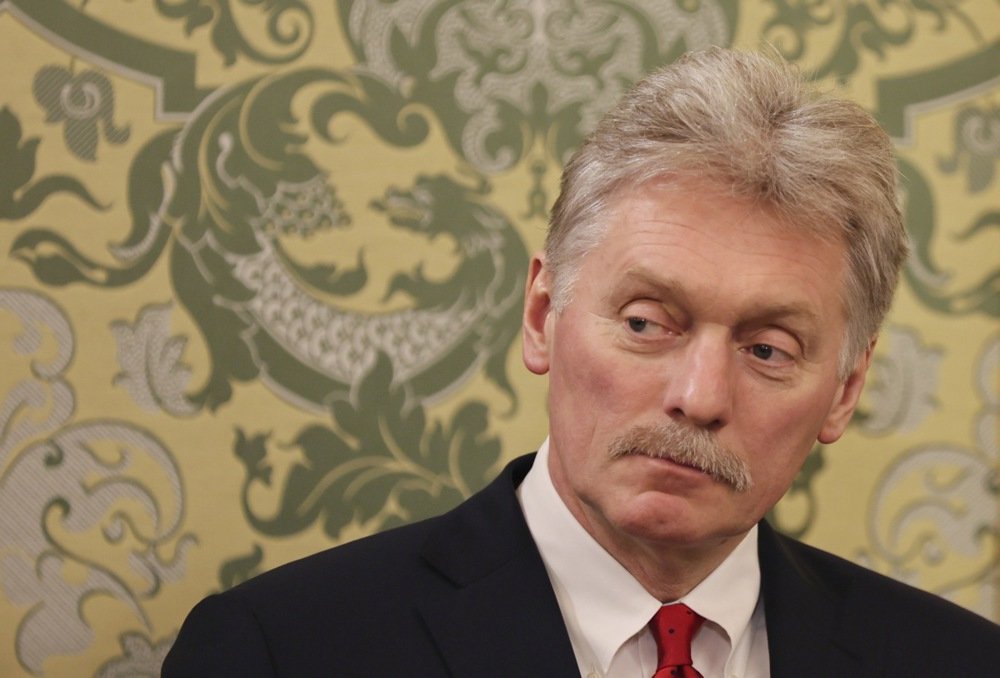




Dmitry Peskov attends a meeting at the Kremlin on 17 March 2025. Photo: EPA/YURI KOCHETKOV
In a rare acknowledgment of Russia’s ongoing crackdown on dissent, Kremlin spokesperson Dmitry Peskov admitted in an interview with state-aligned Expert magazine on Friday that Russia was currently “in a period of military censorship”.
“A lot of publications have shut down, and many journalists have moved away,” Peskov said, noting that Russia was “justified” in applying censorship, as it would be “wrong to turn a blind eye” on media outlets that “deliberately aim to discredit Russia”.
Peskov told Expert that Russian media had undergone a “stark transition” and begun to publish “patriotic materials” more frequently in the past three years, whereas previously the editorial policy of a number of Russian media stood out for “scepticism towards their own country”, he opined.
The Russian authorities would learn from “the mistakes of the past” in order not to “return to the times of rabid outlets such as Meduza”, Peskov said, referring to one of the most prominent Russian independent media outlets forced into exile, “when Russia was only ever mentioned in a negative light, if at all”.
Peskov expressed confidence that a time would come when there would be a desire for a “less harsh media landscape, leading to the emergence of more nuanced journalism”.
Introduced days after the full-scale invasion of Ukraine in 2022, Russia’s wartime censorship laws, which introduce fines and harsh sentences for “discrediting” the army and spreading “false information” about the Russian military, led to the shutdown of dozens of independent media outlets, including Novaya Gazeta, Meduza, and Dozhd, and forced many of their journalists into exile to avoid criminal prosecution.
The laws have also led to the prosecution of dozens of politicians, activists and ordinary citizens for acts as minor as calling the war a war or sharing information about Russian military atrocities from non-state sources.
In a June ruling, the Russian Constitutional Court upheld the legality of wartime censorship laws, despite human rights groups arguing that the law is being weaponised to silence dissent and punish anti-war speech under the guise of combating disinformation.
